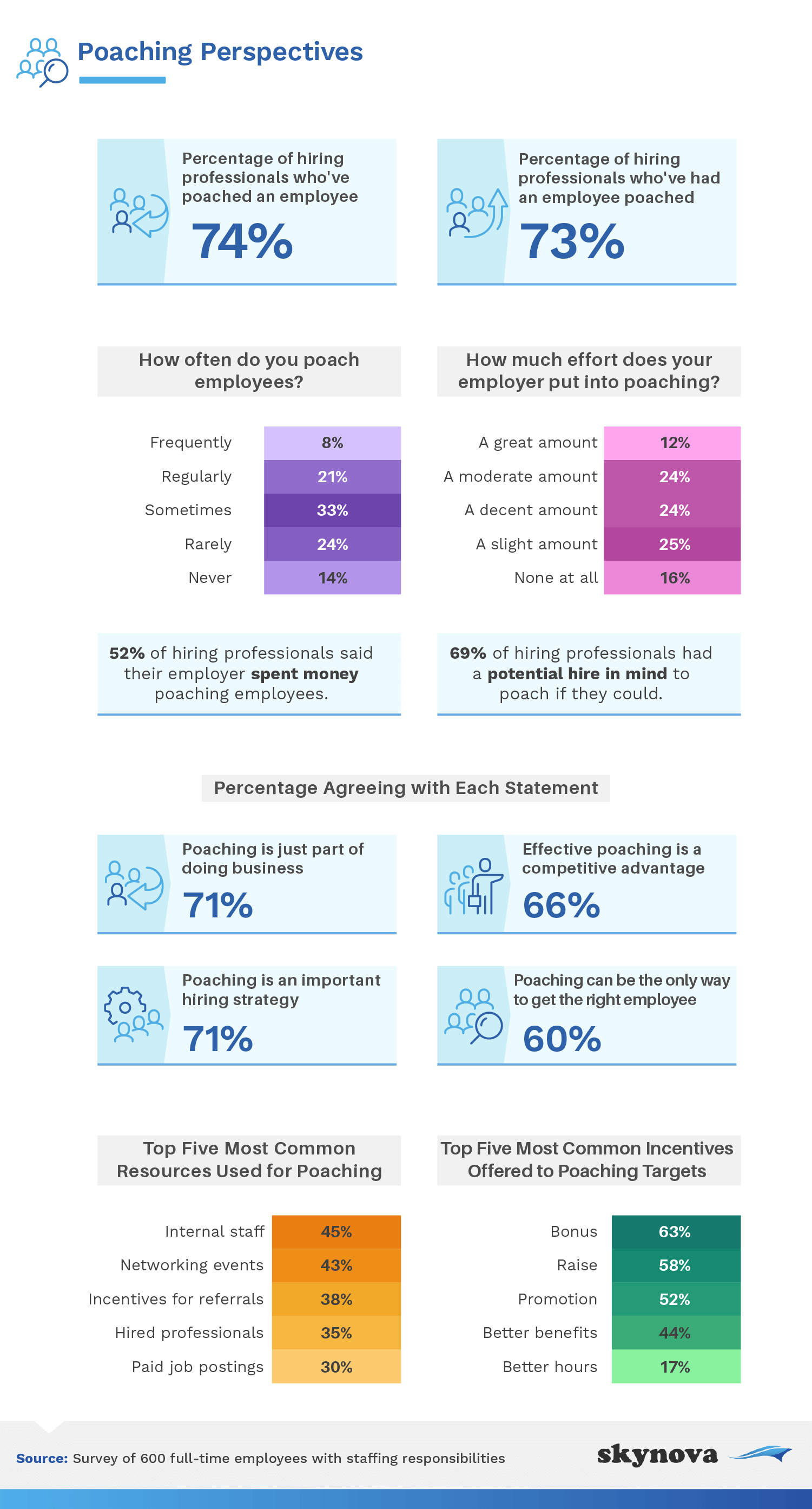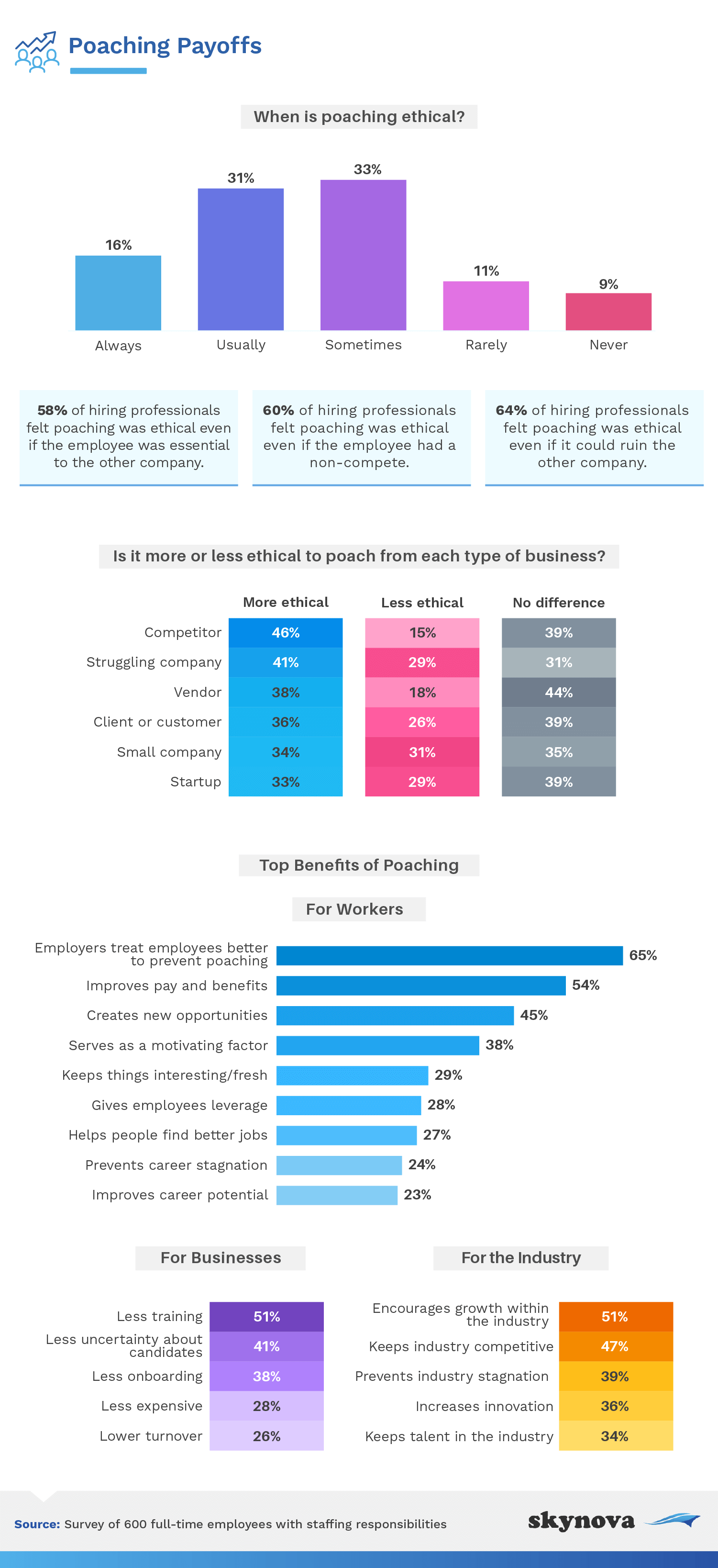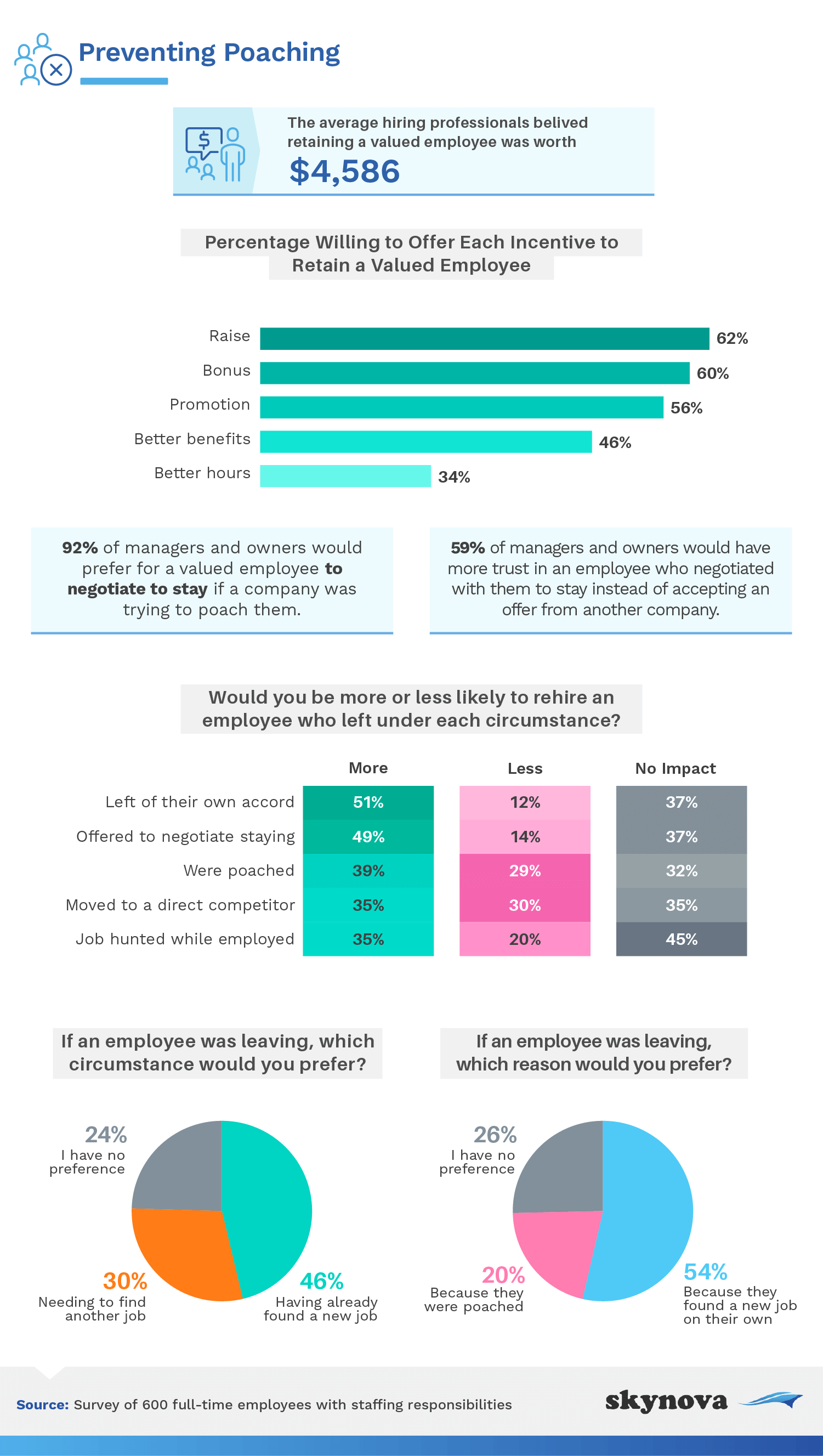
|
In April 2021, nearly 3% of people in the United States quit their jobs. Whether it's because of their salary, a difficult boss or coworker, or just being burned out, people are leaving their current positions and seeking out new opportunities. However, every now and then, an employee puts in their 2 weeks, and you had no idea they were even looking. Well, that's because they weren't. They were poached.
Poaching is when a company directly reaches out to an employed individual who has the skills or traits they are looking for. This tends to happen a lot with people who have in-demand technical skills, but it's possible in any industry. To explore this practice further, we surveyed 600 employees with staffing responsibilities about their experiences poaching employees, as well as losing employees to this process.
When it comes to poaching, almost 75% of our respondents have both poached someone and had one of their employees poached, suggesting this practice is happening often.

While only 29% of hiring professionals said they poached employees regularly or frequently, 36% said they put a great or moderate amount of effort into poaching. There's definitely thought behind it, as 69% of respondents had an employee in mind they would poach, if they were allowed or able.
Ultimately, poaching is fair game to most hiring professionals: 71% of respondents said it was just part of doing business, 66% saw it as a competitive advantage, 60% said it can be the only way to get the right employee, and 59% saw it as an important hiring strategy.
With 14% of employees feeling actively disengaged in their current positions, poaching could open up a door for new opportunities. And since recruiters see this practice as valuable, it's about finding those employees who might be looking for more.
A majority of hiring professionals said poaching was ethical at least some of the time. Still, 20% thought it was rarely or never ethical. Different situations didn't really change hiring pros' opinions: Nearly 60% said poaching workers who were essential to another company was ethical, and 60% said poaching employees who had signed a non-compete was ethical, too.

When considering who the company was poaching from, nearly half of respondents considered poaching from competitors to be fair game. Another 41% saw struggling companies as ethical targets, too. When it came to small companies, our hiring pros were pretty split about whether poaching was more, less, or equally as ethical as other options.
As far as the benefits to poaching, let's consider how it pans out for employees. Ultimately, the company that takes them on is going to have a good understanding of how to retain them, so employees are likely to experience better treatment at their new jobs. Not to mention 54% of people said poached employees also get to enjoy better pay.
For businesses, since they are acquiring skilled, targeted talent, they can spend less time training new hires and feel more certain about incoming employees. On the whole, 51% of employees said poaching encourages growth within a given industry and it helps keep the industry competitive.
Considering that by 2022 more than 50% of employees will need upskilling and additional training, it's no surprise that poaching is an attractive option. Instead, employers can focus on hiring the exact talent to fit their changing needs.
For employers, 46% would rather have an employee leave because they found a new job, and 30% would prefer that the employee needs to find a job afterwards. And while poaching may be a common occurrence, 54% would rather the parting employee find a new position on their own.

So, when an employee leaves, is it worth fighting for them? Hiring pros were willing to spend an average of just over $4,500 to retain a worker. However, employees rejected counter offers about 35% of the time, and 25% of hiring managers still found people who accepted counter offers to be disengaged, according to LiveCareer.
After they leave, employees sometimes realize the grass isn't actually greener on the other side. Some people attempt to make their way back into their previous company. If an employee left due to poaching, 29% of hiring pros were less likely to hire them back, while 51% were more likely to hire an employee back who left of their own accord.
Skynova provides online software for invoicing, accounting, time sheets, and more. We also like to write in-depth articles about various topics we and our customers find interesting, often with a business or workplace angle, and often at the intersection of another area of society like business and technology, politics, sports, or health. The articles will be based on surveys, statistics, and Skynova-conducted research.
For this study, we surveyed 600 full time employees with staffing responsibilities, ranging from supervisors and managers to business owners and high-level executives. Among those respondents, 224 were female, 374 were male, 1 identified as non-binary, and 1 preferred not to provide their gender. Our respondents ranged in age from 18 to 83, with an average age of 39.
In some cases, questions and answers have been rephrased for brevity and clarity. To help ensure data accuracy, all respondents were required to identify and correctly answer an attention-check question. These data rely on self-reporting, and potential issues with self-reported data include telescoping, selective memory, and attribution errors.
Whether you know someone in a hiring position or someone looking for a way out, this project is yours to share. Simply provide a link back to this full study and only share it for noncommercial use.